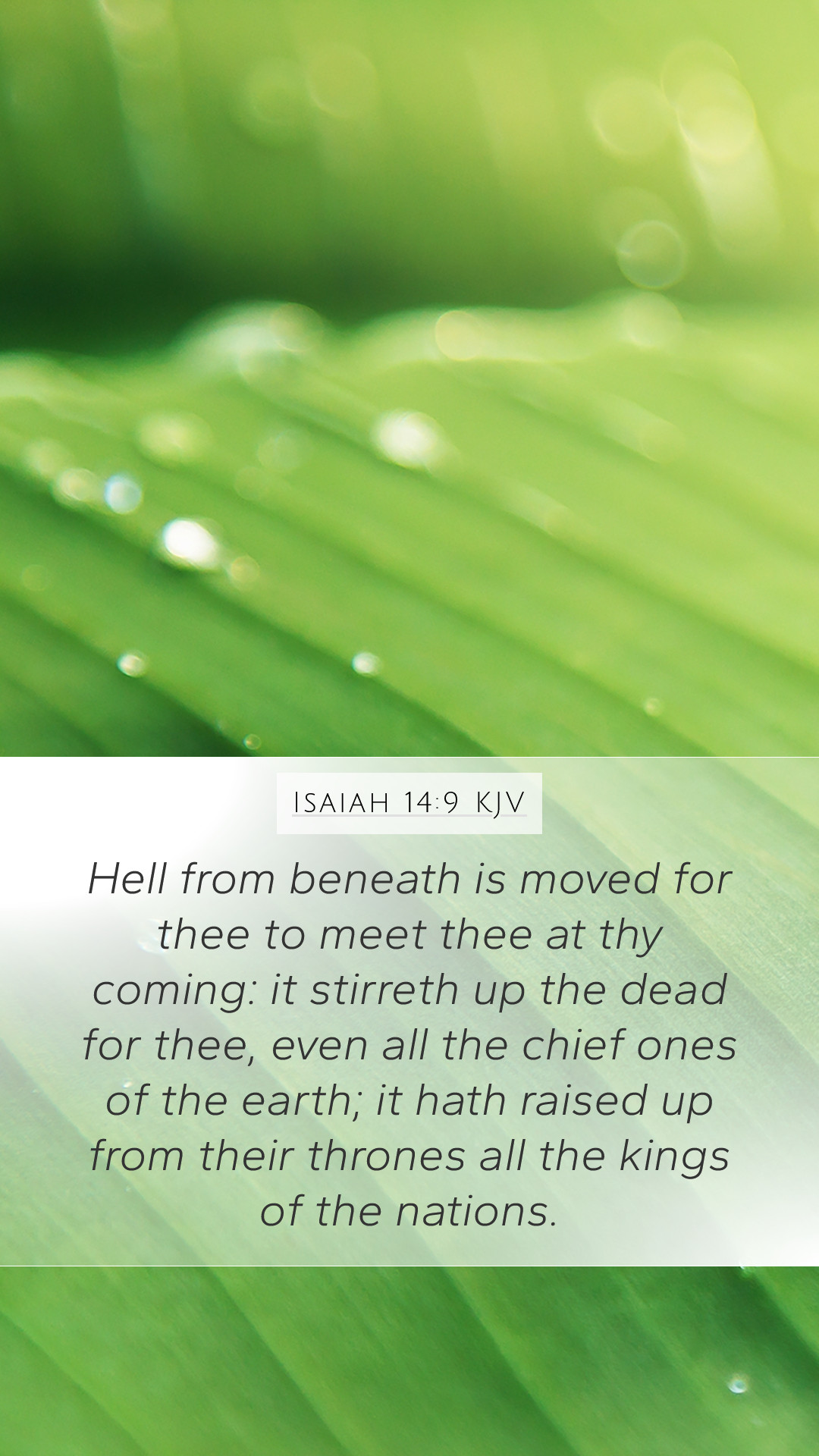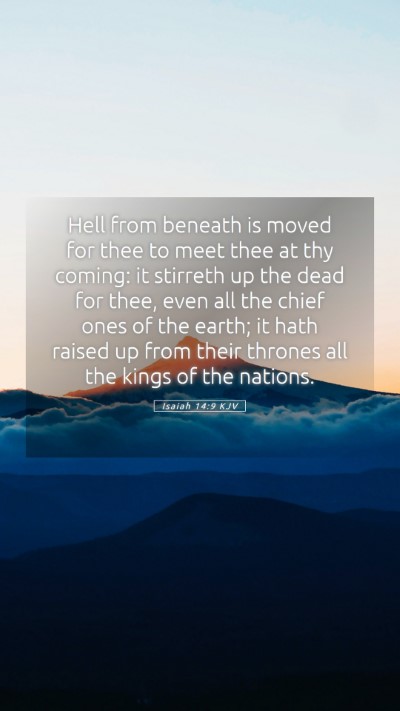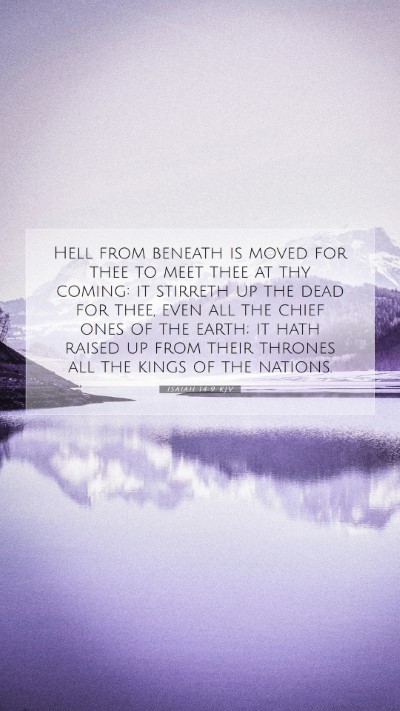Understanding Isaiah 14:9
Isaiah 14:9 serves as a profound verse within the prophetic literature of the Old Testament, addressing significant themes of judgment, the afterlife, and the ultimate fate of the proud and powerful. To gain a comprehensive understanding of this scripture, we'll explore various insights encapsulated in public domain commentaries, including those by Matthew Henry, Albert Barnes, and Adam Clarke.
Verse Text: "Hell from beneath is moved for thee to meet thee at thy coming: it stirreth up the dead for thee, even all the chief ones of the earth; it hath raised up from their thrones all the kings of the nations." (Isaiah 14:9 KJV)
Historical Context
The setting of Isaiah 14 is the impending judgment upon Babylon, a symbol of pride and oppression. This chapter is significant due to its juxtaposition between the fall of Babylon and the eventual restoration of Israel. The verse conveys how the realm of the dead, commonly referred to as hell or Sheol, reacts upon the arrival of a fallen ruler, highlighting the theme of divine justice.
Verse Analysis and Commentary
Matthew Henry's Commentary:
Henry emphasizes the stark contrast between the lofty ambitions of powerful nations and their ultimate end in death. He notes that hell, as a personification, is portrayed as awakening to meet the oppressors once they are humbled. This resonates with the moral principle that no earthly power can escape accountability beyond the grave.
Albert Barnes' Commentary:
Barnes elaborates on the idea that the dead are metaphorically stirred to acknowledge the arrival of mighty kings who once held sway on earth. Specifically, he mentions that this provocation of the dead illustrates the humiliation and reversal of fortunes that accompanies God’s judgment. For the proud tyrants, death is not an escape but rather an entrance into a realm where they are held accountable for their actions.
Adam Clarke's Commentary:
Clarke provides insight into the language used in the verse, interpreting the 'chief ones of the earth' as the once powerful leaders who are now consigned to the same fate as the common man. His commentary underscores the biblical teaching on the inevitable equality that death brings, regardless of one’s title or power in life.
Thematic Insights
- The Fate of the Proud: The verse exemplifies a recurring biblical theme: the prideful will ultimately face judgment. They may have thrived in life, but in death, they stand equal with all others.
- The Justice of God: Isaiah 14:9 reflects God’s justice by showing that the powerful are not exempt from divine reckoning. This can be a source of comfort for the oppressed, affirming that God does not overlook injustice.
- The Nature of Death: The portrayal of Hell responding to the arrival of a fallen ruler emphasizes the permanence and seriousness of death as a consequence of one’s actions on earth.
Application of the Verse
For modern readers, Isaiah 14:9 offers valuable lessons on humility and accountability. It serves as a warning against pride and a reminder that earthly power is temporary. Believers are called to seek righteousness, understanding that true greatness is found in serving others and adhering to God’s will.
Cross References
- Proverbs 16:18 - "Pride goes before destruction, and a haughty spirit before a fall."
- Revelation 20:10 - "And the devil that deceived them was cast into the lake of fire and brimstone..."
- Luke 16:23 - "And in hell he lifted up his eyes, being in torments..."
Conclusion
In summary, Isaiah 14:9 is rich with meaning, providing insights into divine justice, the nature of pride, and the equality brought by death. By studying this verse through the lenses of renowned biblical commentators, we gain a deeper biblical exegesis that informs both our spiritual understanding and practical application in daily life. Through such scripture analysis, believers can engage in meaningful discussions within Bible study groups and utilize various Bible study tools to deepen their understanding of the Word.
This exploration of scripture signifies how to interpret Bible verses accurately, ensuring clarity and fostering a deeper relationship with biblical texts.


